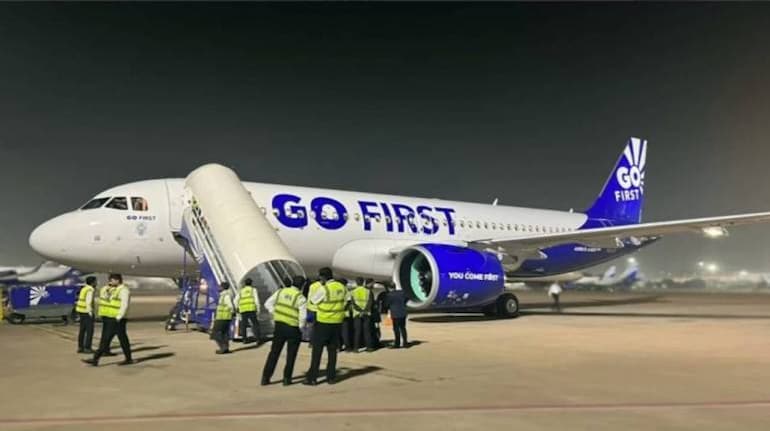



Lessors seeking repossession of their aircraft following the suspension of flights by Go First expected to get justice from the National Company Law Appellate Tribunal. Instead, they got an advisory direction: move “an appropriate application” at the National Company Law Tribunal.
The aircraft lessors will now have to wait longer. How long? One really doesn’t know.
It’s interesting to analyse the developments since Go First filed an application for voluntary insolvency before the NCLT, which, while admitting it, placed a moratorium on the airline’s lenders and stakeholders, including lessors, who are owed money by the carrier. It also meant they cannot initiate any coercive action for six months.
The NCLT justified its action of not hearing the affected entities by averring that “since the airline had filed the insolvency plea under Section 10 of the Insolvency and Bankruptcy Code, the petition could be admitted without first issuing notices to creditors/lessors and hearing them out.”
The words “could be” in the order imply that the creditors/lessors could have been given an opportunity if the NCLT judge felt so. The NCLT will eventually hear the lessors when they move an application before it, as advised by NCLAT on May 22.
Why so urgent?Nevertheless, one is still left wondering why the lessors and other creditors were not heard before the NCLT issued the order on May 10. What was the great urgency since flight operations had already been suspended by Go First? These were some of the basic questions asked after the order was issued.
It also appears that it is not the NCLT’s concern to see whether its decisions cause irreparable harm or are fair to other business entities associated with Go First. How justified is a legal process, which, while hopefully proceeding towards resolution of an issue of one corporate entity (Go First), creates complications for others (the lessors)?
Why should an aircraft lessor be barred from assuming control of its assets when it is widely known that Go First is in no position to utilise the aircraft or pay the lease rentals? Even if it could, in the most optimistic scenario, the lessors would only try to regain control of fewer aircraft.
At least one lessor made it public before the NCLAT that Go First owed it Rs 700-800 crore on account of lease rentals. After the suspension of operations and the filing of the insolvency application, the panic of lessors is quite understandable.
Will Go First be able to meet its financial obligations to them? Lending weight to this thought process was the experience with other airlines that have collapsed in the past. In the circumstances, full of uncertainties, why should lessors not have a right to repossess the aircraft given on lease?
How can one forget that leasing companies are also in a business, like Go First? And if they are unsure of receiving payments for aircraft, how do they ensure profitable operations for their own stakeholders?
The adverse impact of such legal nightmares on the leasing business for other airlines cannot also be overlooked. After all, the lessors have invested heavily in this high cost-intensive business and if they don’t receive money or repossess their aircraft when lease rental payments are uncertain, what happens to their leasing business?
The earlier process for repossession of aircraft by lessors involved a great deal of bureaucratic red tape and the legalities have undoubtedly been eased considerably. However, that hasn’t been good enough, as shown in the Go First case.
The NCLT’s decision clearly sent wrong signals. One doesn’t know what impact it will have globally on the ease of doing business campaign initiated by the government.
Protecting employeesIt was interesting to hear Go First argue in the NCLAT that “it had initiated insolvency proceedings with bona fide intentions to protect the 7,000 employees on its rolls and ensure that the country’s aviation sector enjoys healthy competition.” Full marks to Go First for articulating these ‘noble objectives’ for revival, even if can’t be matched with action on the ground.
Further, Go First’s interim resolution professional (IRP) argued the “airline owes Rs 1,000 crore to its vendors and that the insolvency process will only help repay its dues.” This is a sign of laudable confidence. When in its history has the airline generated a surplus of Rs 1,000 crore after operational costs?
Someone needs to make the IRP go through Go First’s history of operational performance. Unless, of course, the IRP is thinking of large-scale haircuts by creditors and other vendors and planning to start with a clean slate. It will be tragic if this was to be allowed.
No one in the industry believes that revival is on the cards anytime soon. The moot question is: does the airline have the wherewithal, including finances, to meet its obligations to all vendors, including aircraft lessors, for early revival?
While the promoters may have now initiated a search for investors to infuse money in Go First, it would have been infinitely better and logical had it been done before the suspension of flights.
While one can hope, and even pray, for Go First’s revival to ensure protection of the 7,000 employees and for healthy competition, can one ignore the harsh reality that Go First suspended all flights even while more than two dozen aircraft were available?
The interest of employees and talk of competition cited before the NCLAT thus lack credibility. Go First needs to do much more to show that its intentions are genuine and not for the consumption of the NCLT for a favourable verdict on its voluntary insolvency application.
Discover the latest Business News, Sensex, and Nifty updates. Obtain Personal Finance insights, tax queries, and expert opinions on Moneycontrol or download the Moneycontrol App to stay updated!
Find the best of Al News in one place, specially curated for you every weekend.
Stay on top of the latest tech trends and biggest startup news.